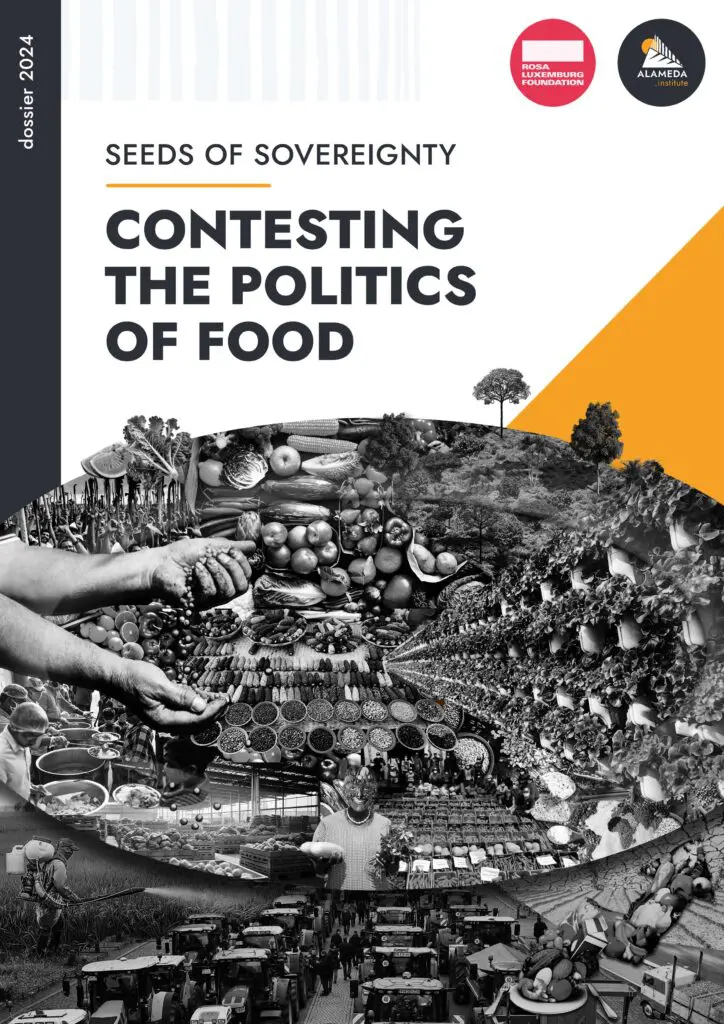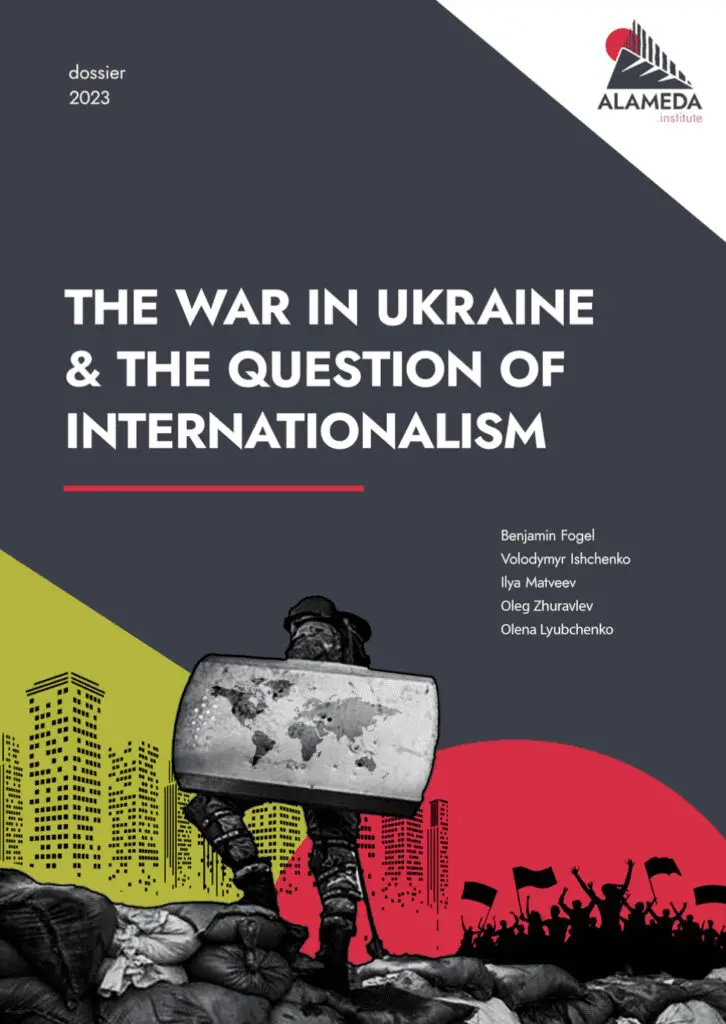IX / Humanitarianism after Unipolarity
The Ukraine war, more than any other event, has marked the transition from a unipolar world to one with two or more great powers. And this transition, more than any other fact, will determine the future of humanitarian internationalism.
For all the horrors that his war unleashed, Russian president Vladimir Putin was correct when, during a televised speech on 28 September, 2022, he remarked: ‘Unipolar hegemony is inexorably collapsing’. Of course, this transition could take a long time: some collapses occur in slow motion, and this one has been proceeding for many years. If American decline is inexorable, its speed is not already set. Indeed, far from advancing this transformation, Putin’s war might even have retarded it, given the crystallisation of a new Western consensus in response.
But the reluctance of many states to conform to the reasserted leadership of the US following the outbreak of war — a posture that recalls Cold-War neutralism ideologically, though it is driven by material and military interests — was indicative of a geopolitics conditioned by new centres of global power. Despite denouncing Putin’s war, African and Latin American states, in particular, steered clear of the sanctions regime that followed. As the struggle over Ukraine continues, it has become easier to see that the passing of unipolarity promises not, in the first instance, a world of greater freedom and justice, but a new cold war involving the US and China. Russia, then, emerges as a secondary power, but one that has so far done more militarily to make clear the terms of a world after unipolarity.
The conditions for humanitarian intervention
‘This is an objective reality that the West categorically refuses to accept’, Putin added in his speech. But the confrontation with China that increasingly reveals itself in the geopolitics of the Ukraine war suggests that the US and its Western allies have already adjusted to a new world of peer competition. Some may think that current US policy can put the genie of Chinese ascendancy back into the bottle. But efforts to ‘confront’ China are likely to intensify great power struggle, rather than suppressing it.
Of course, humanitarianism, as an ethos, an ideology, and a practice, predates US hegemony.
But unipolarity has provided the context for the institutional forms associated with it today – from private charity to state aid to cross-border volunteerism. Many regard contemporary humanitarianism as reflecting a moral consensus at the ‘end of history’. And this is perhaps best borne out by the rise of the spectacular, if rare, act of ‘humanitarian intervention’.
Humanitarian intervention became a feature of interimperial competition over the course of the long nineteenth century. Ottoman lands, in particular, were repeatedly invaded by Christian powers, in the name of ‘humanity’. But this practice – and the rhetoric that signifies it – nearly died out altogether during the Cold War. There were a couple of south-south humanitarian interventions between 1945 and 1989: that of India in East Pakistan, in 1971, and that of Vietnam in Cambodia, in 1978. But great powers generally eschewed moral argument. That changed drastically after 1989, as the US invoked humanitarian concern as motivation for a series of military interventions.
Since NATO’s intervention in Libya, in 2011, as frailties of the unipolar order have been exposed, Western states have been reluctant to go to war on humanitarian grounds. In this period, Putin has provided moral justification for Russian military operations, in Ukraine, as well as Syria. That such claims have rung hollow has not restored the illusion that the West’s interventions advance humanity’s interests more genuinely.
Humanitarianism under unipolarity should not be reduced to its exemplary militarised form. Humanitarianism has not disappeared over recent years as such military interventions have become less viable. Indeed, there is a sense in which the humanitarian spirit has been revived by the war in Ukraine. The depredations of Putin’s forces in the field, like the refugee wave they provoked, have elicited the more familiar and less controversial humanitarian response of material assistance. Far from contesting the new geopolitics, humanitarianism has been restored by the Ukraine war to its former status as a counterpoint to politics. It provides care for those construed as innocent in a messy and violent world, in which great power conflict has returned. Even so, humanitarianism cannot simply revert to its unipolar form.
Humanitarianism and the Cold War
We know from historical study that humanitarianism during the Cold War, while strongly associated with the West, could take alternative forms closer to the agendas of communist regimes. For example, Young-Sun Hong has shown that East and West Germany after the mid-1950s deployed rival versions of globalised humanitarianism in parts of Africa and Asia, which could never be disentangled from the broader choice between ‘capitalism’ and ‘communism’. In fact, few wanted to disentangle humanitarianism from that choice. In part for this reason, humanitarians did not seek a systematic alternative to a contentious world. If their endeavours were twisted to suit one side or the other of the Cold War, nobody was under the illusion that the two superpowers were themselves humanitarian.
This changed in the 1970s and 1980s – a peculiar period between established orders – as humanitarianism began to anticipate its post-Cold-War forms. This interregnum occurred partly because citizens had lost faith in the realisation of elite promises – in the West, as well as in communist states. Organisations like Human Rights Watch and Médecins sans Frontières – both founded in this period — were able to exploit an ideological opening to insist on a more credible humanistic internationalism, one that would not get caught up in the politics of violent states.
For all its breakthroughs in the 1970s, the new humanitarianism only truly came into its own after 1989, as an imperative of the post-political utopia of the end of history. Humanitarians could now associate themselves with the US and its allies without appearing to take sides; their relationship to unipolarity was thus mystified by what Ukria Soirila calls the ‘humanity project’. Subsequent revelations that humanitarianism had served American power generally led its advocates to pretend that they could ultimately disentangle it. But, for most, the abuses went too far for this to be credible.
Humanitarianism in the age of US decline
American hegemony had been faltering even before the Ukraine war crystallised the new reality of multipolarity. It had led to numerous wars of choice that, by any standard, made the world worse. American influence reshaped former communist lands in eastern Europe, resulting in the political backsliding visible in our time; in Russia, it contributed to the development of a form of political capitalism that would provide enabling conditions for the invasion of Ukraine. Pressured into implementing neoliberal reforms after the Cold War, the Russian state failed in its formal democratisation. It became increasingly isolated, even as China was being brought into the World Trade Organisation. China reaped enormous gains from trade integration, resisting the political liberalisation that Western policy-makers hoped it would bring about. Meanwhile, despite becoming beleaguered, Russia was able to renew its bid for regional hegemony, expanding its influence – including westwards, into Europe – through oil and gas exports.
The Ukraine war, regardless of its outcome, is of most historical significance in making clear that American hegemony cannot stave off fundamental alternatives. While the Cold War remains the most obvious reference for speculation about the post-unipolar setting, one might argue that the very fact that it was staged as a contest of emancipatory and futuristic visions will make our experience of multipolarity very different. For one thing, whatever the Chinese state stands for in current geopolitics, it is not promising a radiant future of humanity beyond capitalism, as the Soviet Union once did so influentially. Many speculate, in part for this reason, that the new multipolarity, in the world that Donald Trump and Xi Jinping have helped to bring about, will be more akin to the international balance of power in early modernity, when national advantage was often pursued through mercantilism.
But beyond the inevitable disputes over trade and scarce resources, the new cold war is also likely to generate opposing visions that legitimise the destruction of human life, even if they fail to stir the emancipatory hopes of the past. At any rate, the conflicts that multipolarity will precipitate will be ideologically fraught enough to place humanitarians in a familiar predicament. At each moment, they will have to choose whether to affiliate with one side or the other, or to strike a more neutral pose.
Internationalism after utopia
In a multipolar world without an obviously hopeful project, humanitarianism would seem to tend naturally to the left, even when it presents as neutral. As forces of reaction now brazenly promote the exclusion – and even eradication – of surplus populations, a primary objective of progressive politics must be to protect human life.
For this reason, humanitarianism should not now be conceived apart from a renewed progressive internationalism, even if it is to play only a small role. The restraint of great-power war, characteristic of peace movements, and a distributional justice agenda, characteristic of socialist ones, will have to be the more significant pieces. But there will be a need for humanitarians themselves to develop a clearer sense of their politics (and their allies), not least so as to know when to adopt a tactical stance of neutrality. Amid the uncertainties of great-power competition, they risk insensitivity to perceptions of bias, if they cling unthinkingly to the conceit of post-politics, characteristic of liberal ideology in the unipolar moment.
Of course, in many situations a neutral stance will still make sense. In response to the plight of growing numbers of refugees, in particular, professional humanitarianism has become increasingly necessary in recent years, just as its conventional social base – the Western middle class – has disintegrated. And it will continue to play an instrumental role in the mitigation of damage to human life, as ecological breakdown and more frequent capitalist crisis produce proliferating effects, including political turbulence. In most instances, progressives will do well to avoid its overt politicisation, maintaining its distinction from forms of internationalism that explicitly challenge existing social systems.
That a new progressive internationalism is required was already obvious before the war in Ukraine. Unipolarity featured too many unnecessary wars and it enthroned neoliberal economics. Human rights movements, arguably the vanguard of the new international activism that emerged in the 1970s, had already been indicted for falling silent in the face of warmongering, and for privileging the reduction of poverty over the reduction of inequality; they humanised an unjust, and often brutal, system.
Progressives must now seek to build coalitions that contest war and demand the redistribution of our planet’s riches. Whether or not this is more viable under conditions of multipolarity, it is certainly made more urgent by the intensification of great-power competition. And it will depend on a robust, organised, and effective defence of human life.
RELATED ARTICLES
Post-scriptum sobre o décimo aniversário
O ovo do ornitorrinco
Fragmentos de 2013
Dez anos antes de junho de 2023




